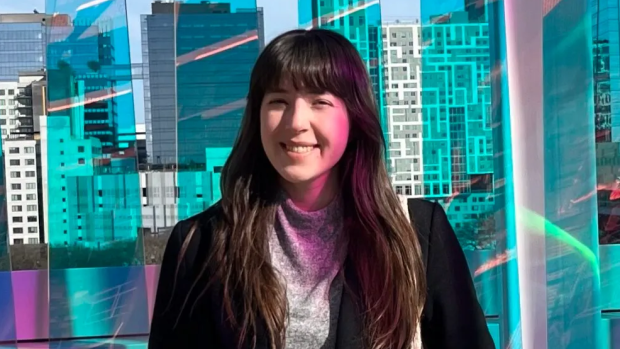Rosie Bellini sheds light on how digital technology contributes to intimate partner violence and stalking

Assistant Professor Rosie Bellini is the newest member of the Department of Computer Science and Engineering
Intimate partner violence (IPV) and stalking are widespread issues that affect tens of millions of people worldwide each year. As Assistant Professor Rosie Bellini’s research has highlighted, technology is playing a growing role in exacerbating the situation for some of the most vulnerable members of society. Abusive adversaries can easily access a survivor’s personal devices to read private messages, place tracking devices in cars, or withhold access to their digital bank accounts, robbing them of the capacity to live a life free of control.
Bellini, who has an interdisciplinary background and has held a leadership role in heading new research projects at Cornell Tech’s Clinic to End Tech Abuse (CETA), combines rigorous data-driven and engaged design research techniques from the fields of Computer Security and Privacy (S&P) and Human-Computer Interaction (HCI) to alleviate harm to the most vulnerable members of our society. “The first step, which is often overlooked, is to focus on how and why adversaries are using technology to cause harm; if we don’t understand the cause of the problem, we’re likely only going to be playing catch up to prevent it from happening,” she explains.
Until recently, IPV and technology-enabled abuse have been studied mainly from the perspective of the survivors who come forward to share their experience, but Bellini has taken a novel approach that focuses on the abusers — and the technologies that enable the abuse to happen. After all, studying the online behaviors of perpetrators in other areas such as cybercrime and child sexual abuse has led to better threat intelligence and techniques to combat attacks, and she believes that similar insights can be gleaned in this context.
In several award-winning studies, she and her colleagues were the first to identify how adversaries use online forums dedicated to the discussion of sexual infidelity and found that many forum users actively boasted about their stalking behaviors. This included advising others about how to surveil their partners without detection and providing suggestions for next steps to take. This work led to understanding the claimed justifications that made abuse, from the perspective of the abuser, necessary. Bellini developed the first framework that explains how adversaries go from thinking about their behavior to actively abusing technology. Such a framework has enabled community partners to identify crucial moments when interventions might be safely applied to prevent or deescalate technology-enabled harms.
Bellini, a native of the United Kingdom who earned her doctoral degree in Computer Science from Newcastle University in 2021, asserts that designers and developers have a duty of care to ensure that the services, devices and platforms they provide to end users are harder to abuse in the first place.
While we cannot design out abuse in its entirety, there are certainly things we can do to ensure that abuse is harder to achieve; if something is too hard to accomplish, this will ideally deter the majority of adversaries looking for the lowest effort attack for the highest reward.”
— Rosie Bellini, Assistant Professor
A good example of this was her recent focus on technology-enabled financial abuse (the exploitation, surveillance, restriction, or sabotage of a partner’s financial resources) which is common in cases of IPV. It would be possible to hinder an adversaries’ efforts, she has written, if the financial technology sector designed for intimate threats through adversarial thinking, recommended strategies to users for detecting financially abusive activity, and trained customer service agents to be aware of potential financial abuse. “While thinking about adversaries who cause us harm may be uncomfortable, if we are to ensure technology is safe, secure and private for all, we need to continue to innovate on new insights, methodologies, and techniques that tackle abuse head on,” she asserts. She is not alone in this fight: Bellini has collaborated with government, advocacy organizations, private industry, and academia to ensure that her findings are not only representative, but useful to those impacted the most.
Bellini, who joined Tandon in January 2025, aspires to make her students more aware of the responsibilities of creating consumer-facing technologies and the digital-safety risks that can result when that technology is misused. “As engineers, computer scientists, designers, we all have a responsibility to ensure digital-safety for everyone, as we all reap the benefits of a safer digital environment,” she says.




